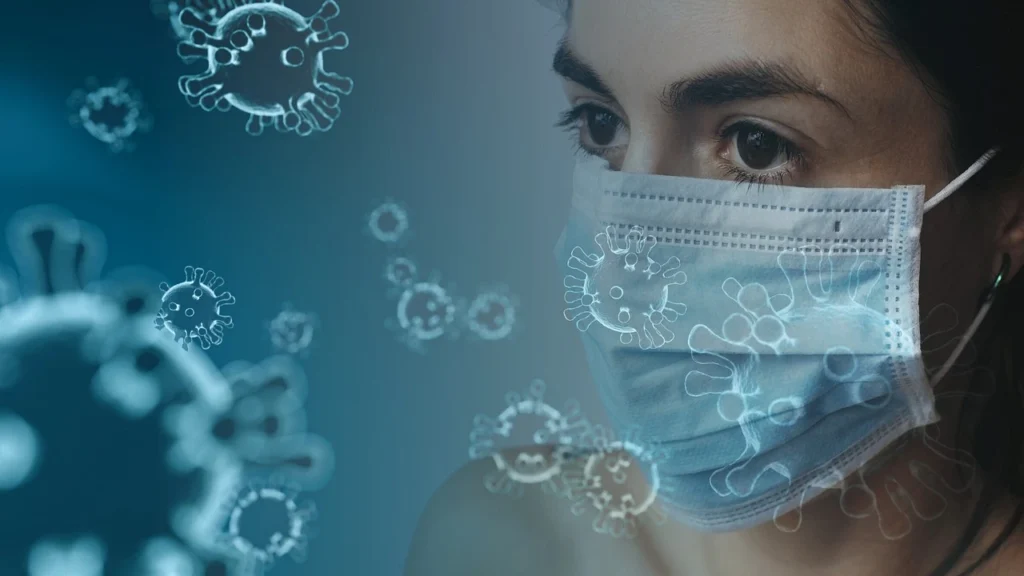
Last Updated On: septiembre 9, 2024
Infections are caused by pathogens (microscopic organisms) such as viruses, bacteria, fungi, or parasites. They enter our bodies, reproduce, and disrupt normal activities. Infectious diseases are the primary cause of illness and mortality in the United States and worldwide. Some people have a more difficult time avoiding infection such as:
It may appear that living in a prosperous country like the United States you have bleak chances of catching any infections. But the fact is that these infectious microbes are always present among us. In this article, we’ll discuss the importance of preventing infections and how to protect oneself from infection.

The Infection Prevention and Control (IPC) guidelines enable you to limit the possibility of one of the most common healthcare complications: Healthcare-Acquired infections (HAI). A robust IPC program will reduce risks and hazards not just for your patients, but also for your employees.
Here are some recent HAI statistics:
Other than avoiding runny noses and coughs, the American CPR Care Association offers several practical measures to avoid infection.
Many pathogenic bacteria grow on inert surfaces like a computer keyboard, light switch, or elevator button! CDC advises washing hands thoroughly for at least 20 seconds with soap and water. Then dry your hands with a paper towel. An alcohol-based hand gel or wipe will serve the purpose in the absence of water and soap.
Enroll in an infection control certification program to get the knowledge and training you need to ensure you’re doing everything possible to prevent the transmission of germs and sickness. You can do an online Bloodborne Pathogens course from the American CPR Care Association. This online training is compliant with OSHA’s «Bloodborne Pathogens Standard» (29 CFR 1910.1030). This training will give you the knowledge you need to protect yourself and others if you are exposed to blood or other potentially infectious materials (OPIM) at work.
Infectious agents like fungi, bacteria, and viruses can be found on towels, toothbrushes, razors, handkerchiefs, and nail clippers. Don’t share your or use others’ items to avoid catching an infection.
Most infections begin with the disease-causing bacteria multiplying and dividing long before any symptoms appear. Coughing or sneezing can spread the germs in the air via tiny droplets. Instead of using your hands, the latest guideline is to cover your mouth with your arm, sleeve, or crook of the elbow.
When your body encounters bacteria that has previously caused an infection, it increases the production of white blood cells and antibodies to prevent infection from occurring again. Getting vaccinated, on the other hand, «tricks» your body into thinking it has been infected by bacteria. This strengthens the body’s defenses against future infection.
Microbes thrive on almost any food, but especially on foods kept at room temperature. Most of the germs stop growing in the refrigerator. Refrigerate items within two hours of preparation. Follow the given tips:
If your holiday destination has a doubtful quality of drinking water, make sure to drink and brush your teeth with a safe water source like bottled water. Consume cooked dishes and avoid raw veggies and fruits. Finally, make sure to keep up with any vaccines that are recommended or required for your travel destination.
Sexually transmitted infections and diseases can be avoided easily through practicing safe sex. For example, using barrier methods like condoms or diaphragms.
This habit can contribute to the spread of a variety of infections. Many microorganisms thrive in the warm, moist environment of your nose, as well as mucous-covered surfaces like your eyes and mouth. Infections can readily be avoided by not touching these regions.
Infections can be transmitted from animals to humans. They are known as «zoonotic diseases.” They are more common than most people believe. If you have pets, make sure they receive regular check-ups and are up to date on their immunizations. Maintain cleanliness at home always to prevent infections that pets can spread. Always wash your hands after touching animals and make sure your children do as well.
It is simple to spread germs and diseases without even realizing it. That is why training is beneficial. Knowing what to do to maintain your home free of bacteria, viruses, and infection ensures not only your safety and health but also the safety and health of your loved ones. Contact the American CPR Care Association immediately for inquiries and more details.